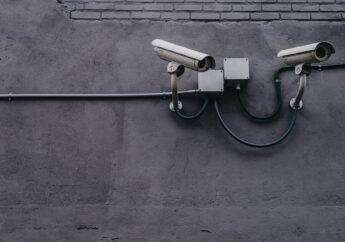Strengthening The U.S. Defense Supply Chain: Strategies For DIB Businesses And Organizations
by Abdul Aziz Mondal Business Security Systems Published on: 21 April 2023 Last Updated on: 08 November 2024

The U.S. Defense Industrial Base (DIB) plays a critical role in maintaining the nation’s military and national security capabilities. As a complex network of private and public sector organizations, suppliers, and manufacturers, the DIB is responsible for providing the products, services, and technologies essential for the operation of the U.S. defense apparatus. However, the DIB is also susceptible to vulnerabilities that can introduce weaknesses into the defense supply chain. This article will explore strategies that DIB businesses and organizations can adopt to minimize such risks and enhance the security and resilience of the U.S. defense supply chain.
1. Implement Robust Cybersecurity Measures

The increasing reliance on digital systems and the growing sophistication of cyber threats make cybersecurity a top priority for DIB businesses and organizations. Implementing comprehensive cybersecurity measures is essential for protecting sensitive information, intellectual property, and critical infrastructure. Key steps include:
- Regularly updating software and hardware systems to protect against known vulnerabilities
- Implementing strong access controls and authentication procedures
- Training employees on cybersecurity best practices and raising awareness about potential threats
- Regularly conducting risk assessments and penetration testing to identify and address vulnerabilities
2. Strengthen Supply Chain Visibility and Management

A resilient defense supply chain requires full visibility and effective management of all components and suppliers. DIB businesses should:
- Perform thorough due diligence on suppliers, including evaluating their financial stability, security practices, and potential risks associated with their operations
- Implement a centralized supply chain management system to track and monitor supplier performance, quality, and compliance
- Develop contingency plans to address potential disruptions and identify alternative suppliers when needed
- Foster strong relationships and open communication with suppliers to ensure alignment with security and quality standards
3. Enhance Physical Security Measures

Physical security is a vital component of overall supply chain resilience. DIB businesses and organizations should:
- Implement robust access controls to limit unauthorized entry to facilities
- Regularly assess the security of storage and transportation infrastructure
- Monitor and track assets throughout the supply chain to prevent theft or tampering
- Train personnel to recognize and report potential security threats
4. Encourage Collaboration and Information Sharing
Sharing information and best practices among DIB businesses and organizations can help identify and address potential vulnerabilities more effectively. Initiatives to facilitate collaboration include:
- Participating in industry forums and working groups focused on supply chain security
- Engaging with government agencies, such as the Department of Defense, to receive guidance and resources for strengthening supply chain resilience
- Sharing threat intelligence and security best practices with other DIB members to raise awareness and foster collective defense
5. Ensure Compliance with Government Regulations and Standards
Compliance with government regulations and standards is crucial for maintaining the integrity of the defense supply chain. DIB businesses should:
- Regularly review and update internal policies and procedures to ensure alignment with relevant regulations, such as the Defense Federal Acquisition Regulation Supplement (DFARS) and the Cybersecurity Maturity Model Certification (CMMC) framework
- Conduct regular audits and assessments to identify gaps in compliance and address them promptly
- Train employees on the importance of regulatory compliance and their role in maintaining supply chain security
6. Develop a Culture of Security Awareness and Continuous Improvement
Fostering a strong security culture within DIB businesses and organizations is essential for maintaining the resilience of the defense supply chain. A proactive approach to security can help minimize vulnerabilities and ensure that employees at all levels understand the importance of protecting sensitive information and assets. Key steps include:
- Conducting regular security awareness training for employees to educate them about potential threats and the role they play in protecting the organization’s assets
- Encouraging employees to report security concerns and incidents without fear of retribution, fostering a culture of transparency and trust
- Establishing performance metrics and incentives to motivate employees to prioritize security and continuously improve processes
- Promoting a culture of learning and adaptation by conducting regular after-action reviews to identify lessons learned from security incidents and implementing necessary improvements
7. Embrace Technological Innovations to Enhance Supply Chain Security
Leveraging the latest technological innovations can help DIB businesses and organizations improve the security and efficiency of their supply chains. By staying abreast of emerging technologies and adopting them strategically, DIB members can enhance their ability to identify and address potential vulnerabilities before they can be exploited. Potential areas for technological adoption include:
- Implementing advanced analytics and artificial intelligence (AI) tools to monitor supply chain activities in real-time, enabling faster detection and response to potential threats or disruptions
- Adopting blockchain technology to improve transparency, traceability, and data integrity in the supply chain, reducing the risk of fraud, tampering, or counterfeit components
- Utilizing the Internet of Things (IoT) devices and sensors to monitor the physical environment and transportation infrastructure, providing valuable data for risk assessment and decision-making
- Exploring the use of autonomous systems and robotics for logistics and transportation tasks, enhancing efficiency and reducing the potential for human error or security breaches
Without a doubt, the security and resilience of the U.S. defense supply chain are of paramount importance to the nation’s military and national security capabilities. As a complex network comprising numerous private and public sector organizations, suppliers, and manufacturers, the Defense Industrial Base (DIB) must adopt a comprehensive and collaborative approach to safeguard the defense supply chain from vulnerabilities.
By implementing robust cybersecurity measures, DIB businesses and organizations can proactively defend against the ever-evolving cyber threats that target sensitive information, intellectual property, and critical infrastructure. Furthermore, strengthening supply chain visibility and management enables these organizations to effectively monitor, assess, and mitigate risks throughout the entire supply chain, fostering a higher level of security and reliability.
Enhancing physical security measures, from access controls at facilities to the transportation of assets, helps to ensure that the defense supply chain remains secure against potential theft, tampering, or sabotage. Encouraging collaboration and information sharing among DIB members, as well as government agencies, can foster a collective defense mentality, ensuring a stronger and more informed response to emerging threats and challenges.
Moreover, strict compliance with government regulations and standards, such as the Defense Federal Acquisition Regulation Supplement (DFARS) and the Cybersecurity Maturity Model Certification (CMMC) framework, is crucial for maintaining the integrity of the defense supply chain. Implementing a culture of security awareness and continuous improvement can empower employees at all levels to prioritize security and contribute to the overall resilience of the supply chain.
Lastly, embracing technological innovations, such as advanced analytics, artificial intelligence, blockchain, and IoT, can further enhance the security and efficiency of the defense supply chain, allowing DIB businesses and organizations to stay ahead of potential threats and challenges.
By adopting these comprehensive strategies, DIB members can significantly minimize vulnerabilities within the U.S. defense supply chain and contribute to the overall strength and effectiveness of the nation’s defense apparatus. This collective effort will help ensure the security and resilience necessary for the United States to maintain its military and national security capabilities in an increasingly complex and dynamic global environment.
Read Also:



































































































